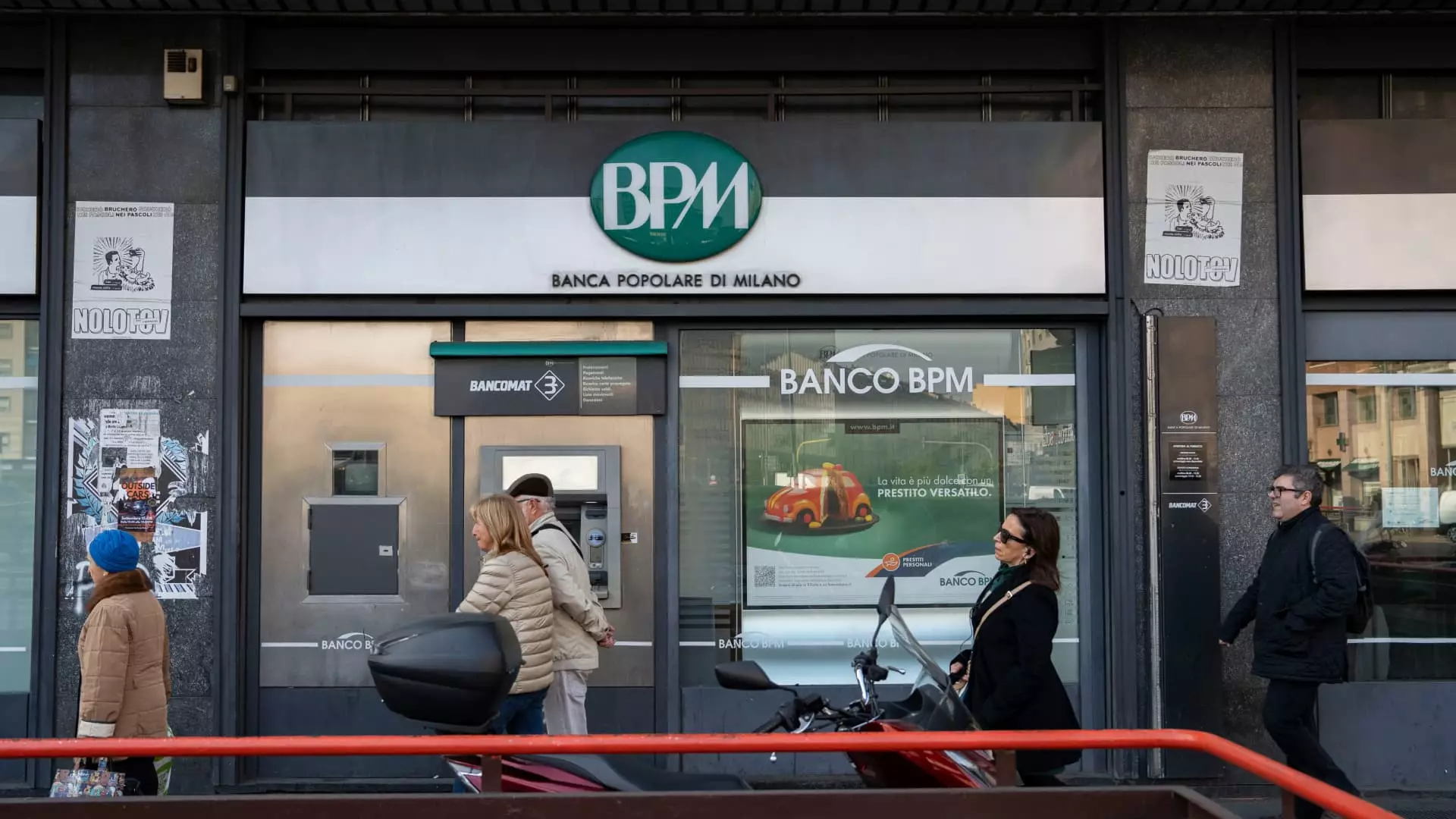In a surprising move, Banco BPM has voiced its discontent regarding UniCredit’s recent takeover bid, valued at 10 billion euros. This unexpected offer raises several questions about the intentions behind the proposal and its alignment with Banco BPM’s financial health and long-term strategic goals. Despite the allure of consolidation in an increasingly competitive banking environment, the Banco BPM board has articulated their concerns over the motivations and terms of the offer, labeling them as “unusual.”
The Banco BPM board’s assertion that UniCredit’s bid does not accurately reflect its profitability is a crucial point of contention. The bank’s leadership believes that the valuation proposed by UniCredit does not take into account its robust financial framework and growth potential. Banco BPM has expressed a commitment to maintaining its operational independence, emphasizing that any merger must enhance stakeholder value rather than create uncertainty regarding its ongoing expansion plans.
By articulating its belief that the merger would erode its legal autonomy, Banco BPM underscores the importance of maintaining a strong, independent identity within the Italian banking sector. This sentiment is particularly relevant in light of recent acquisitions and mergers that have reshaped the European banking landscape, as stakeholders seek to understand the ramifications of such large-scale reconfigurations.
UniCredit has proposed an accelerated timeline for the potential merger, which poses significant risks. Fast-tracking such significant operational changes can lead to chaotic integration processes, which often result in cultural clashes and operational inefficiencies. Banco BPM’s apprehension surrounding this issue is reflected in its cautionary stance against pursuing such a rapid merger. The board has signaled that a thorough evaluation of the partnership’s compatibility is essential before moving forward.
Moreover, approaching acquisitions with a sense of urgency can undermine the strategic planning necessary for a successful union. The board at Banco BPM is rightly concerned that a hurried merger may detract from rather than enhance the operational capabilities and market positioning of both institutions.
Another pivotal point raised by Banco BPM pertains to the geographical exposure that the merger may entail. With UniCredit eyeing expansion opportunities in Germany, there’s a palpable concern that this could dilute Banco BPM’s standing in the more dynamically developing regions within Italy and the Eurozone. Stakeholders are cautioned that shifting focus away from domestic strengths could potentially compromise the bank’s growth trajectory.
The reference to risks associated with a merger diluting geographical exposure illuminates a broader tension within the European banking sectors—striking a balance between domestic focus and international expansion. As competition intensifies, banks must navigate these waters carefully, ensuring that they do not sacrifice their core competencies for the promise of a broader market presence.
On the other hand, UniCredit’s CEO Andrea Orcel has articulated a vision for creating larger, more formidable banking entities within Europe. His assertion that “larger banks are vital for economic development” is indicative of the current market sentiment that views size and scalability as essential for competitiveness. However, this perspective is met with skepticism from several stakeholders, particularly when it appears to disregard the unique strengths of individual banks.
The situation is further complicated by UniCredit’s ambitions in the German banking sphere, including plans related to acquiring Commerzbank. Italian Economy Minister Giancarlo Giorgetti’s remarks on the dangers of a two-front war in banking strategy raise legitimate concerns about the feasibility of UniCredit’s concurrent pursuits.
As the banking sector faces unprecedented transformations, the dialogue surrounding potential mergers such as the one between UniCredit and Banco BPM is vital. This case exemplifies the complex interplay between ambition, profitability, and strategic positioning within a volatile economic landscape.
Ultimately, Banco BPM’s resolute stance against the unsolicited bid serves as a reminder of the need for diligence in merger negotiations, prioritizing stakeholder value, and maintaining distinct competitive advantages in an increasingly consolidating market. The unfolding scenario will likely continue to attract significant attention, as stakeholders from both banks scrutinize the evolving implications of this potential merger on the broader Italian and European banking landscape.

